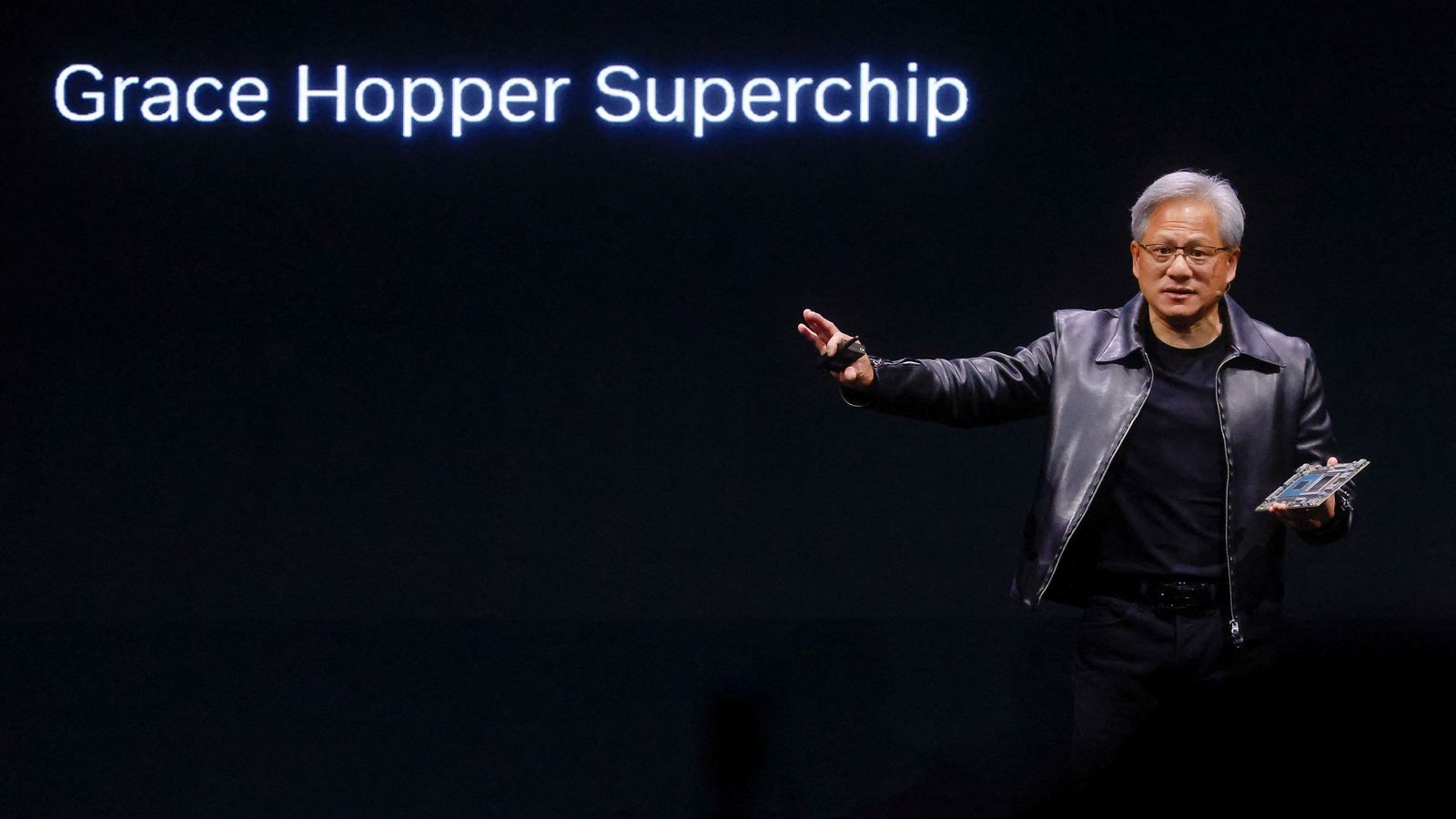A company that makes microchips for artificial intelligence (AI) has become the first chipmaker to be worth $1trn.
Nvidia has joined the ranks of tech giants worth the eye-watering sum, including Amazon, Apple, Microsoft, and Google parent company Alphabet, as investors expect the company will benefit from the AI revolution.
It makes chips that are key to AI technologies, such as the ChatGPT generative AI chatbot, and on Monday launched a new range of products for AI, including a supercomputer platform.
Please use Chrome browser for a more accessible video player
Following that announcement, on Tuesday afternoon one Nvidia share grew to be worth $408.13 (£328.85) leading to the company’s overall worth hitting the $1trn mark for the first time.
The company had been beset by supply chain problems but has overcome them and the share price has been rising steadily. Throughout 2023 Nvidia shares are up 180%.
Last week investors and analysts were encouraged by Nvidia sales projections, which are forecast by the company to reach $11bn (£8.86bn) in the three months up to July. It’s a 50% increase on analyst expectations.
Read more:
What are the concerns around AI and are some of the warnings ‘baloney’?
Artificial intelligence is similar extinction risk as nuclear war and pandemics, say experts
What are the concerns around AI and are some of the warnings ‘baloney’?
Rishi Sunak talks ‘international collaboration’ on AI with Google’s Sundar Pichai
Rishi Sunak meets tech bosses over ‘existential’ artificial intelligence risks
Nvidia is now more valuable than other chipmakers such as Intel and tech giant Meta.
Company founder and current chief executive Jensen Huang founded Nvidia aged 30 in 1993. He is only the second chief executive in US history, after Amazon founder and former chief executive Jeff Bezos, still at the helm of a company to reach the milestone value.
Be the first to get Breaking News
Install the Sky News app for free
In 2022 Nvidia had tried to buy UK chipmaker Arm for $40bn (£32.22bn) but the deal was abandoned after coming under regulatory pressure in both the UK and US.








